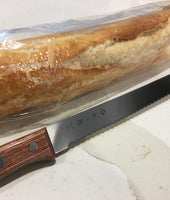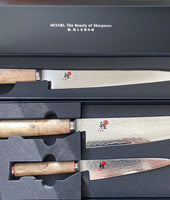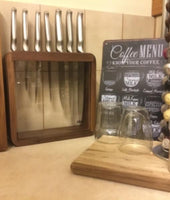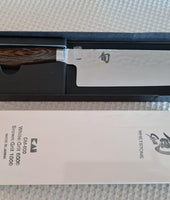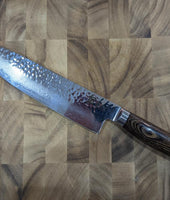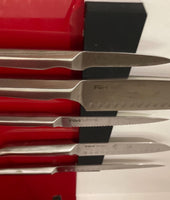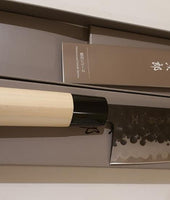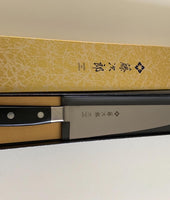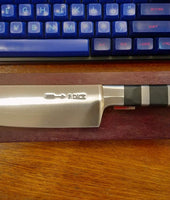Whether you are a busy homemaker or a pro chef, kitchen knives are the most important tools for your routines. It should be in your best interest to bring out the best in food when cooking, whether for your loved ones or customers. However, this tool cannot function well without a good quality cutting board.
Chopping boards are designed to place your food against something solid so that the knife can slice the material with ease. While choosing a chopping board, it is important to ensure that it should minimize the wear and tear to the knife blade edges.
No one likes dull blades as it leads to uncontrolled motion while slicing food and may even lead to serious accidents. In order to choose the best chopping board suited to your needs, it is first important to compare the available options and the pros and cons of each.
1. Bamboo:
You can find many chopping boards made of bamboo material, but this hard material can damage the blades of your knife, especially when it is made up of softer steels. They can even dull the hardest Japanese knives; hence, are not commonly recommended to professionals.
Pros:
- They come with an organic feel.
- Cheaper option.
- Made up of renewable sources.
Cons:
- Not good for knife edges.

2. Composite:
These cutting boards are made up of various substances such as compressed cardboards, recycled papers or harvested wood fiber, etc. They come in thicker and heavier form but are considered as a better choice than glass chopping boards as composite materials are safe for your knives.
Pros:
- Moderately priced.
- They do not suffer from warping.
- Made up of recycled materials.
Cons:
- Some people reported odor and flaking issues.
- The thicker versions tend to be costlier.
- Wood-based models are not good on kitchen knife edges.
3. Plastic:
The plastic boards are available in a variety of colours and styles. Moreover, they weigh less compared to wooden boards. Some people consider them the best choice for modern home décor. But they are harder on kitchen knife edges so cannot be considered as the primary choice.
Pros:
- Most of these products are dishwasher safe.
- Comparatively good for maintaining knife sharpness.
- Many of these are made up of recycled materials.
Cons:
- Most of these models are not usable as hot pads.
- The thin or light models cause slipping on counters.

4. Wooden:
By all means, wooden cutting/chopping boards are the best choice for every home. But the only trouble with them is that they are less hygienic. However, proper care and cleaning routines can ensure a healthy solution for the long run. Wooden boards are also the best choice to save knife edges; they maintain blade sharpness for a longer time.
Pros:
- Organic look that suits every home décor.
- They do not slide over counters.
- Wooden chopping boards can maintain edges of your knives.
- Made up of renewable sources.
Cons:
- Must be hydrated from time to time.
- Need proper cleaning routine to ensure desired hygiene level.

Also Read: The Best Chef’s Knives: Choosing the Right Blade
Explore Other Product: Wild Wood the Mogo Chop Chopping Board, Wild Wood Wooden Dish Brush Beech, and Wild Wood Wooden Spatula with Silicone Head.


























